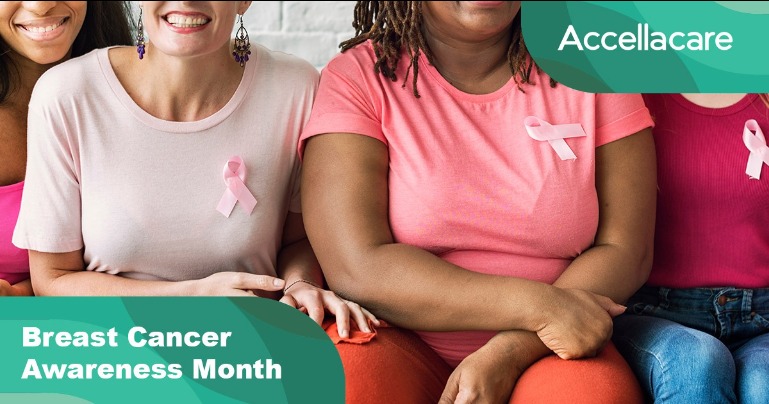Breast Cancer Month 2024
Uniting for a Cure: The Impact of Breast Cancer Awareness Month.
Breast cancer is one of the most common cancers, affecting millions of women and men worldwide. It develops when abnormal cells in the breast grow uncontrollably, forming a tumor that can spread to other parts of the body. Early detection through regular screenings, such as mammograms, increases the chances of successful treatment. While advancements in research have led to improved treatments and survival rates, ongoing awareness and education are essential to reduce the risk and support those impacted by this disease.
Breast Cancer Awareness.
Breast Cancer Awareness Month is an annual campaign dedicated to raising awareness about the impact of breast cancer and the importance of early detection. It encourages people to educate themselves, get regular screenings, and support ongoing research efforts.
Key aspects of this awareness initiative include:
- Promoting the importance of early detection through mammograms and self-exams.
- Supporting patients, survivors, and their families through advocacy and resources.
- Highlighting research advancements aimed at improving treatments and finding a cure.
- Encouraging donations to fund vital research and patient care programs.
Signs and Symptoms.
Early detection is critical in successfully treating breast cancer, so it's important to be aware of the changes that might indicate a problem. Breast cancer often doesn’t present symptoms in the early stages, which is why regular screenings are essential. However, being familiar with how your breasts normally look and feel can help you identify any unusual changes that should be evaluated by a healthcare provider.
Common signs and symptoms include:
- A lump or thickening in the breast or underarm area.
- Changes in the size, shape, or appearance of the breast.
- Unexplained pain in the breast or nipple area.
- Nipple discharge, particularly if it’s bloody.
- Skin changes on the breast, such as dimpling, redness, or peeling.
These signs don't always mean cancer, but any change should be checked out by a medical professional to ensure early and accurate diagnosis.
Treartment for Breast Cancer
Breast cancer treatment varies depending on the type and stage of cancer, as well as individual patient factors. Common treatment options include surgery to remove the tumor, chemotherapy to target and destroy cancer cells, and radiation therapy to eliminate any remaining cancer in the breast area. Hormonal therapy may be recommended for cancers that are sensitive to hormones, and newer treatments like immunotherapy are emerging as promising options. The approach to treatment is often personalized, combining multiple therapies to offer the best chance of recovery. Advances in research continue to improve outcomes, giving patients more targeted and effective treatment options.
Life After Breast Cancer Treatment: Embracing a New Normal.
Life after breast cancer treatment can be both challenging and transformative. Many survivors experience a range of physical and emotional changes as they adjust to their new reality. Common concerns include managing side effects from treatment, such as fatigue or changes in body image, as well as anxiety about recurrence. Support systems play a crucial role in this transition, whether through family, friends, or dedicated support groups. Reasearch studies like those offered by Accellacare can provide valuable resources and initiatives tailored to help survivors thrive.
While the journey may be difficult, many women find strength and resilience as they embrace their new normal, focusing on health, self-care, and renewed purpose. Life after breast cancer is about reclaiming joy and finding support along the way, and every survivor’s path is unique.





